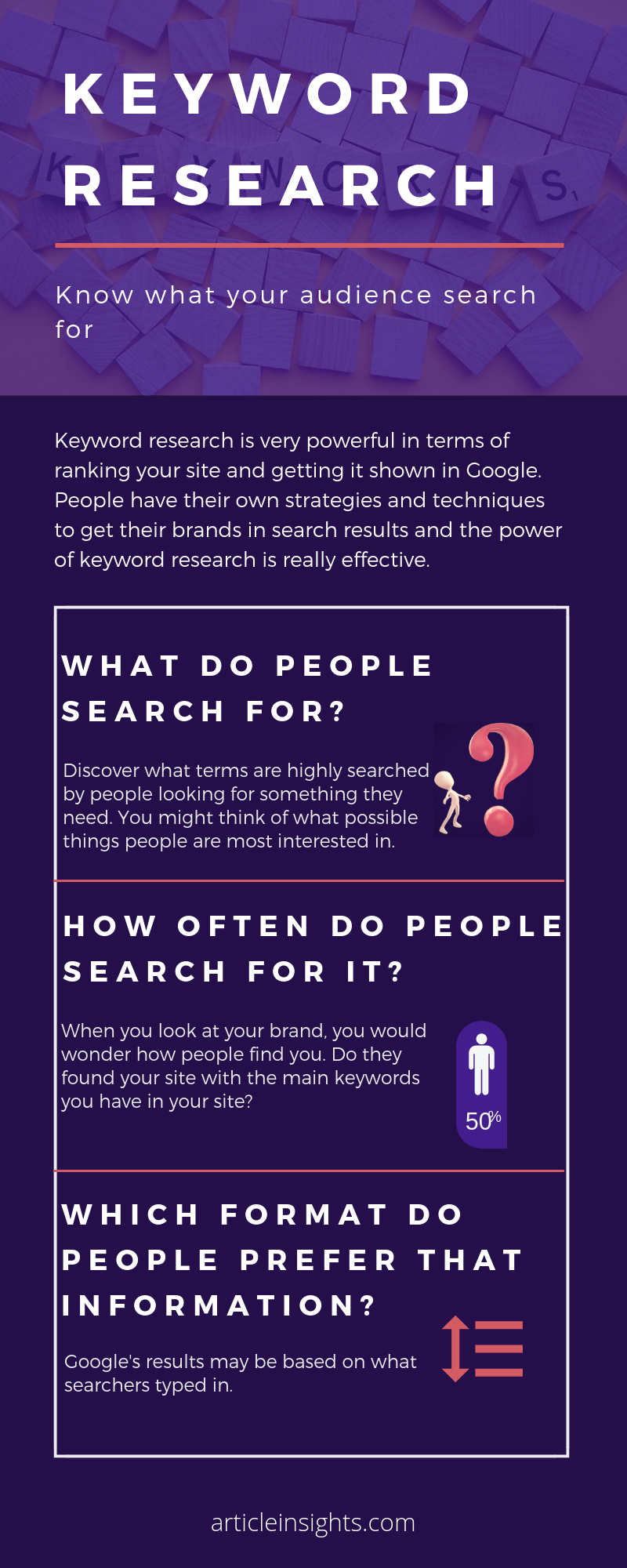Contents
Understanding what your audience wants
Keyword research is very powerful in terms of ranking your site and getting it shown in Google. People have their own strategies and techniques to make their brands show up in search results and the power of keyword research is really effective.
Now that we have it done, let us understand how keywords are being crawled by search engines and what terms are most likely to search by people. See the most asked questions by searchers when finding brands, products or services in social media.
What do people search for?
Discover what terms are highly searched by your target audience looking for something they need.
You might think of what possible things people are most interested in. That means, when creating your blog content, you would not just think on the description of your brand. You might as well think of what your searchers might learn from it.
Would they find what they need when they click on your site?
How often do people are searching for it?
When you look at your business brand, you would wonder how people find you.
Do they found your site with the main keywords you have in your site?
How many people found you with those terms and the time spent in your site?
The higher the search volume for a given keyword or keyword phrase, the greater the competition typically required to achieve higher rankings. This is called keyword difficulty. In some cases, it is a risk to target those low competition keywords with the main keywords, yet it assured the high organic rankings as well.
This is long tail keywords which can get the chance of getting high ranks in search engine results.
Which format do people prefer that information?
Google’s results may be based on what searchers typed in. However, with millions of results that search engines are listing on every results page, there are five categories to be aware of.
1. Informational queries: The searcher is looking for data or information, such as the name of a brand or the shoe size of Queen Elizabeth
2. Navigational queries: The searcher wants to visit such a place on the Internet, like as Twitter or the homepage of the NBA.
3. Transactional queries:The searcher desires to do something, corresponding to paying bills or watching Netflix.
4. Commercial investigation: The searcher wants to compare goods and services and find which one best fit to their wants. You need to create a great marketing for your products that will promote them better than any other products in the marketplace.
5. Local queries:The searcher wants to find something domestically, like the nearest ice cream parlor, dentist, or music bars.
